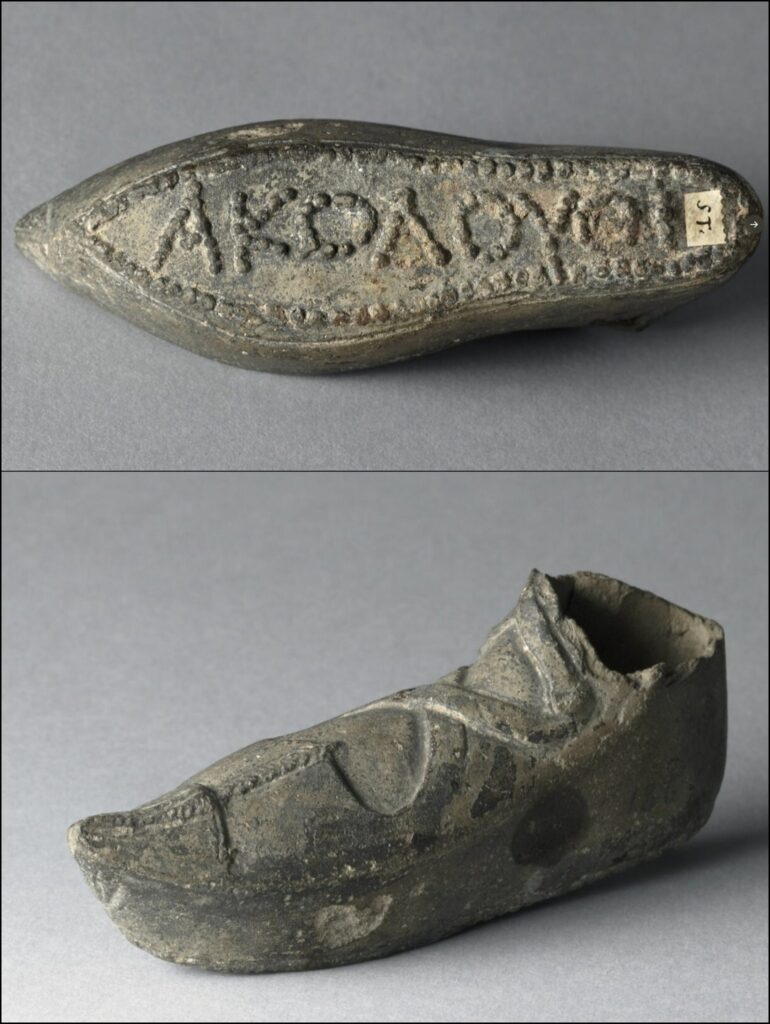
1 Thessalonians 4
1 Finally, then, brothers, we ask and urge you in the Lord Jesus, that as you received from us how you ought to walk and to please God, just as you are doing, that you do so more and more. 2 For you know what instructions we gave you through the Lord Jesus. 3 For this is the will of God, your sanctification: that you abstain from sexual immorality; 4 that each one of you know how to control his own body in holiness and honor, 5 not in the passion of lust like the Gentiles who do not know God; 6 that no one transgress and wrong his brother in this matter, because the Lord is an avenger in all these things, as we told you beforehand and solemnly warned you. 7 For God has not called us for impurity, but in holiness. 8 Therefore whoever disregards this, disregards not man but God, who gives his Holy Spirit to you.
I took a picture earlier this year standing in the ruins of the ancient city of Corinth. The picture is of a large hill in the distance, or a small mountain. In truth, it looks like a massive rock. Atop that hill was where the temple of Aphrodite stood two thousand years ago. The Corinth of that time was very much a pagan city. Immorality was rife.

I knew before we arrived at Corinth that, in Paul’s day, there was a temple atop that hill and that in that temple were temple prostitutes. I was unaware, until arriving there, of just how far away and high up that temple would have been!
Our tour guide told us two fascinating things about this. First, she told us that the temple prostitutes would come down twice a day to try to entice the people of Corinth and so, ultimately, to bring more money into the temple under the guise of allegedly sacred carnality. Second, she shared with us that the prostitutes who would come down would sometimes wear special sandals, on the bottoms of which was the Greek word which, translated, means, “Follow me.” So as these prostitutes walked, their feet would stamp the words “Follow me” into the ground for all possibly-interested people to see and obey.

A model of the sandals described.
Paul is writing to the Thessalonian Christians in our text today, yet this was still Greece and the shocking behavior of Corinth was repeated in many ways throughout the pagan world.
It is hard for us to imagine just how openly brazen the immorality of the ancient world was…but, then again, it is not, is it? H.A. Ironside wrote in 1946:
We might say, “Well, we live in a civilized land where men have learned the difference between clean and unclean living; we do not need such an exhortation as this.” But a little acquaintance with conditions in and out of the professing church will emphasize the importance of the admonition given here. There is always the temptation to lower the Christian standard in regard to things that are immoral and unclean. We need to be constantly reminded of the importance of living pure lives.[1]
Paul turns in chapter 4 of 1 Thessalonians to an encouragement and to a warning. He encourages the Thessalonian believers to look and act more and more like Jesus. And he warns them not to follow in the way of immorality.
“More and more”: The call to progressive sanctification.
Paul begins by urging the Christians of Thessalonica to grow in their sanctification. This is the word he will use in verse 3. Watch:
1 Finally, then, brothers, we ask and urge you in the Lord Jesus, that as you received from us how you ought to walk and to please God, just as you are doing, that you do so more and more. 2 For you know what instructions we gave you through the Lord Jesus. 3 For this is the will of God, your sanctification…
See here the intensity of Pauls’ appeal: “we…urge you in the Lord Jesus.” To do what? To keep walking in the way of Jesus “more and more.” Note that Paul does not deny that they are already walking in the way of Jesus: “just as you are doing.” He is not scolding them. He is warning them..
Why should they seek to walk “more and more” in the steps of Jesus? Because, as Paul tells us in verse 3, “This is the will of God, your sanctification…” That this is God’s will is highlighted in even stronger terms in Romans 8:
29 For those whom he foreknew he also predestined to be conformed to the image of his Son, in order that he might be the firstborn among many brothers.
This is sanctification: the process of being conformed to the image of his Son.
Let us talk for a moment about that word, “sanctification.” Herschel Hobbs points out that the word is akin to “consecration” or “holiness.” Sanctification is the process by which Christians become holy in their daily lives, become more and more like Jesus.
There are two movements in the Christian life:
- Justification
- Sanctification
Justification is when you are declared justified on the basis of the merits of Christ, when you are born again. This is when you are saved. This is a one-time moment.
Sanctification is the daily process whereby the saved man or woman or boy or girl is transformed increasingly into the image of Jesus. In this sense, sanctification is meant to be progressive: it progresses, it continues, it grows.
Hobbs also quotes the great Greek scholar A.T. Robertson and makes a fascinating point about that word, “consecration.”
Robertson…notes that the old Greek spelling of hagizō, hagismos was in the New Testament changed to hagiazō, hagiasmos. The former referred to dedication to a god or goddess with no thought of moral quality. The New Testament terms carry the idea of dedication to God’s service, but also the added moral quality in keeping with God’s nature.[2]
This is powerful stuff! The New Testament idea of consecration, of sanctification was no mere oath of fealty. Rather, it was a commitment to conformity. We do not merely swear allegiance to Jesus. We set our feet in His path with a determination to become like Jesus!
I ask you: Are you being conformed daily, more and more, into the image of the Son? This is God’s will for you!
“Abstain”: Flee that which corrodes.
A major component of sanctification is abstention, is abstaining from that which corrodes, that which corrupts. Paul is going to use here the example of sexual immorality because that was such a prevalent problem in Greece…just as it has been everywhere in the world including our own day! Paul calls upon the early church to abstain from sexual immorality as part of their sanctification journey.
3 For this is the will of God, your sanctification: that you abstain from sexual immorality; 4 that each one of you know how to control his own body in holiness and honor, 5 not in the passion of lust like the Gentiles who do not know God; 6 that no one transgress and wrong his brother in this matter, because the Lord is an avenger in all these things, as we told you beforehand and solemnly warned you.
Paul seems to be saying that sexual immorality is, for many, ground zero in the battle for sanctification. In fact, David Bentley Hart believes that verse 3 should literally be translated, “For this is God’s will, your sanctification, for you to abstain from whoring.”[3] In context, this was likely what Paul had in mind. Think, again, of Corinth.
Craig Keener gives us a bit of a glimpse into how the ancient world viewed these matters.
Greek and Roman practice allowed for intercourse with prostitutes and slaves; premarital sex was prohibited for males under Roman law only if an aristocrat were doing it with an upper-class woman (this was called stuprum). Judaism was much stricter, reserving sex for marriage (although ancient sources indicate that some Jewish men did fall prey to premarital and extramarital temptations).[4]
Here, then were the alternatives offered the Christians:
- sexual immorality, which is a sin against God;
- sexual purity, reserving sex for marriage.
To be frank, it is amazing how even in the conservative evangelical church we have compromised in astonishing ways on just this point. So let us be clear: God’s Word restricts the sexual act to the covenant bonds of marriage. As a follower of Jesus, we should honor this and understand that the Lord calls us to this for our well-being.
Again, it is amazing that this is controversial in our day. Richard John Neuhaus, a number of years back, wrote the following about the then-Anglican Archbishop of Canterbury and some comments he made that were deemed inappropriate.
“I know that this statement may distress some,” said Archbishop George Carey of Canterbury. “For all I know, some of you may be wrestling with this issue personally.” Speaking at Virginia Theological Seminary, he declared, “I do not find any justification from the Bible or the entire Christian tradition for sexual activity outside marriage.” That may seem unexceptionable, but a few weeks earlier the seminary’s board of trustees voted 31-3 to allow cohabitation by seminarians, homosexual and heterosexual, if their sponsoring bishops accepted their “lifestyle.” Although the Archbishop of Canterbury has no judicial or disciplinary authority in the Episcopal Church here, his statement was deemed “controversial” by those who thought he might be suggesting, however gently, that the Bible and Christian tradition proposed a sexual morality that may still be pertinent today.[5]
As it turns out, the Bible is still pertinent today when it speaks on these matters.
Hear Paul again:
3 For this is the will of God, your sanctification: that you abstain from sexual immorality; 4 that each one of you know how to control his own body in holiness and honor, 5 not in the passion of lust like the Gentiles who do not know God
Note that abstaining from immorality, abstaining from sin (whatever it is, sexual or non-sexual) is a prerequisite for sanctification. If you choose to reject this while claiming to be a follower of Jesus, please note that God’s word says (in verse 5) that to be ok with sexual immorality is to live as if you “do not know God.” Pagans practice immorality. Not Christians. That is, at least, what should be.
Verse 6 appears to be speaking of adultery when it says:
6 that no one transgress and wrong his brother in this matter, because the Lord is an avenger in all these things, as we told you beforehand and solemnly warned you.
To approach another man’s wife with impure intent, Paul is saying, is to wrong the brother and, of course, the sister as well. Note what Paul says next: “the Lord is an avenger in all these things.”
Christian: A crucial component of your walk with Jesus is turning away from the paths of destruction. Do not sin against God and one another. Reject those things that hurt your growth in Jesus!
“Holiness”: The Neglected Goal.
Ultimately, what is the goal? Conformity to Christ. Or, to put it another way, holiness. Paul continues:
7 For God has not called us for impurity, but in holiness. 8 Therefore whoever disregards this, disregards not man but God, who gives his Holy Spirit to you.
N.T. Wright translates verse 7 as, “For God did not call us to a dirty life, but in holiness.”[6] That is well said.
We have seen this before. In Matthew 5, Jesus said:
20 For I tell you, unless your righteousness exceeds that of the scribes and Pharisees, you will never enter the kingdom of heaven.
Yes, we are sinners. And, yes, if we say we have no sin, we are liars. As we read in 1 John:
8 If we say we have no sin, we deceive ourselves, and the truth is not in us. 9 If we confess our sins, he is faithful and just to forgive us our sins and to cleanse us from all unrighteousness.
Yes—thank you Lord!—we find forgiveness in Jesus! No, we are not told to muster holiness out of our own pitiful efforts. This is a work of grace!
And yet, brothers and sisters, hear me: Are we not called to be holy? Does the fact that our efforts are imperfect mean that our efforts should not be engaged and given to the Spirit? Does the fact that we cannot save ourselves mean that we should not strive to be holy, take practical steps, use means?
Put another way: Sanctification is a work of God, but that work includes our efforts. The Christian is not utterly passive in the process of sanctification.
You will not know scripture if you do not pick up the Bible, open it, put on your glasses (if need be), read, and memorize.
You will not grow in prayer if you do not put down your phone or turn off your televisions and pray!
You will not grow in holiness if you decide that not only will you be passive in the process of your own sanctification, but you will also engage in behaviors that war against your sanctification!
As Dallas Willard said so memorably: “Grace is opposed to earning, not to effort.” Effort does not save, but effort is part of sanctification. It is not all of it, of course, but we give our efforts to Jesus along with our hearts.
Christian, listen to me: Try! Try! Try! Work! Work! Work! In the name of Jesus. By the power of the Spirit, yes! But Jesus and the Spirit also work through your efforts. I am not calling you to works righteousness, but I am calling you to a righteousness that works!
Let us go back to those sandals in Corinth and their enticement to immorality, stamping in the dirt the words, “Follow me!”
There is another pair of sandals that presents themselves to the believer. The feet in these sandals are nail-pierced and scarred. And the one who wears them also says, “Follow me!”
“Follow me!” says the devil!

A model of the sandals described.
“Follow me!” says the Lord!

Church, if Christ is within you, the decision is clear: Follow Jesus! Every day, in every moment: Follow Jesus!
19 I call heaven and earth to witness against you today, that I have set before you life and death, blessing and curse. Therefore choose life, that you and your offspring may live, 20 loving the Lord your God, obeying his voice and holding fast to him, for he is your life and length of days, that you may dwell in the land that the Lord swore to your fathers, to Abraham, to Isaac, and to Jacob, to give them.” (Deuteronomy 30)
[1] Ironside, H.A. Addresses on the First and Second Epistles of Thessalonians. (Neptune, NJ: Loizeaux Brothers, 1947), p.43.
[2] Hobbs, Herschel. “1–2 Thessalonians.” The Broadman Bible Commentary. Gen. Ed. Clifton J. Allen. Volume 11 (Nashville, TN: Broadman Press, 1971), p.278.
[3] Hart, David Bentley. The New Testament. (New Haven, CT: Yale University Press, 2017), p.408.
[4] Keener, Craig S. The IVP Bible Background Commentary: New Testament (IVP Bible Background Commentary Set) (p. 587). InterVarsity Press. Kindle Edition.
[5] RJN, “While We’re At It,” First Things. June/July 1997.
[6] Wright, N.T. The Kingdom New Testament. (New York, NY: Harper One, 2011), p.418.
